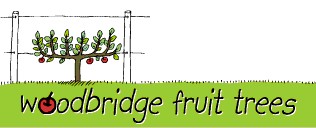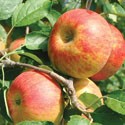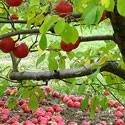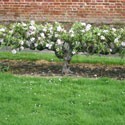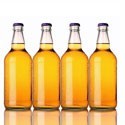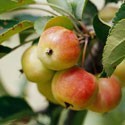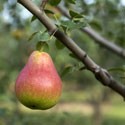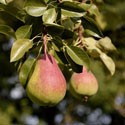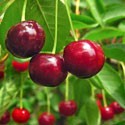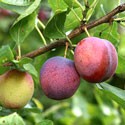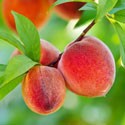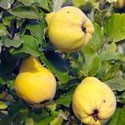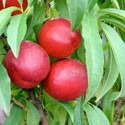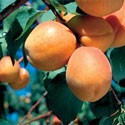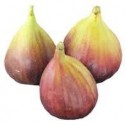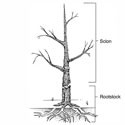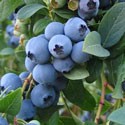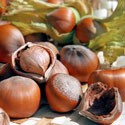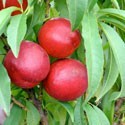No products
Our range of dwarfing and non-dwarfing fruit trees, nuts, berries.
Fruit Trees There are no products in this category.
Subcategories
-
Dwarf Apples
Heritage apple varieties on DWARF rootstock. These apples are ideal for back yards, small orchards, espaliers or anywhere where space is tight. Varieties ripen from Christmas to July providing 6 months of fruit. Wee included some more recent varieties as well as historic ones. There are excellent eating apples, cookers, big, small, common and unusual. Something for every occasion.
-
Semi-dwarfing Apples
Heritage apple varieties on SEMI-DWARFING rootstock. These apples are ideal a free-standing tree, rather than espaliering. They are a little more vigorous than our dwarfing trees.
-
Stepover Apples
Step-over apple trees on EXTRA-DWARFING rootstocks. These highly sought-after trees can make productive hedges half a metre in height. Ideal for edging garden and vegetable beds, or a striking ornamental hedge. We tend to select later ripening varieties so that the fruit are hanging after the leaves have fallen. See our article on step-overs for more information.
-
Cider Apples
Cider apple trees on SEMI-DWARFING rootstocks. These are a selection of specialty cider varieties from the English and French cider traditions. They make superior cider (in the right hands!) and are to the cider world as to the Pinot Noir or Chardonnay are to the world of wine.
-
Crab Apples
Crab apple trees on SEMI-DWARFING rootstocks. These are considered as ornamentals, but can be used in juicing to offset the sweeter apple or pear. Highly regarded as pollinators for apple varieties because of their prolific flowering.
-
Dwarf Pears
Pear trees on DWARFING rootstocks. Dwarfing forms allow these pears to bear much earlier and make more manageable trees than the huge old pear trees seen on old farms. "Pears for your heirs" was the old adage pointing to their longevity, slowness of growth and bearing, and eventual large sized tree. The French (and Belgians) have been responsible for bringing pear culture to it's peak in the 1700s.
-
Perry Pears
Select from our range of Perry pears on Dwarfing rootstocks.
-
Cherries
Cherry trees on DWARFING rootstocks. The sweet cherry varieties we grow have been developed from the European bird cherry (Prunus avium), while the sour cherries (which are still tangy as well as sweet) have been developed from Prunus cerasus, a wild cherry from Asia. Cherries definitely need protection from birds and many growing methods have been developed to accommodate this eg. espalier, spanish bush or fans so that they can be netted.
-
Plums
Plum trees on NON-DWARFING rootstocks. The so-called European Plums we sell were introduced into Europe from Syria and Persia and are the product of long selection and development over the last 1000 years. Plums have pale greenish yellow flesh and rich sugary flavour, ripening in February. Generally two varieties are needed for cross pollination, although there are some that are self fertile. Esplaiering these shuold be done on a fan shape only.
-
Peach
Old style peaches on non-dwarfing rootstock. These are best grown as free-standing trees to 3-4m but can be espaliered in a FAN shape effectively keeping it below 1.8m.
-
Quinces
Quince trees on DWARFING rootstocks. Closely related to the pear, quinces are attractive trees, and the fruit wonderfully aromatic - treasured for cooking, tarts, preserves and jellies.
-
Nectarine
Old style Nectarines on non-dwarfing rootstock. These are best grown as free-standing trees to 3-4m but can be espaliered in a FAN shape effectively keeping it below 1.8m.
-
Apricots
Apricot trees on SEMI-DWARFING rootstocks. These are best grown as free-standing trees to 3-4m but can be espaliered in a FAN shape effectively keeping it below 1.8m. The Moorpark produces a smaller tree, and can be kept smaller on an espalier as well. Medlars produce small trees or can be espaliered easily to 1.5m.
-
Figs
Figs on non-dwarfing rootstocks. Knows for their sensuous fruit both fresh and dried. Figs like long hot summers but not too dry, with well drained soils, preferrably out of the wind. They tolerate being potted. -
Rootstocks
Rootstocks are used for grafting and budding onto. If you know or want to learn how to graft or bud, you can propagate yourself. This year we offer a handful of rootstocks, but sorry no quince or pears.
-
Berries
A selection of raspberries, blackberries, logans, blueberries, currants and other edible berries for the garden.
-
Nut Trees
Hazelnuts and almonds. Hazels are great for mass hedging, but can be trained into a small tree. Almond pollination can be tricky but this self-fertile one allows you to grow plenty with just one tree.
-
Dwarf Stone Fruit
Dwarfing Stone fruit - Peaches, Apricots, Plums, Nectarines. Idea for small espaliers or pots.
